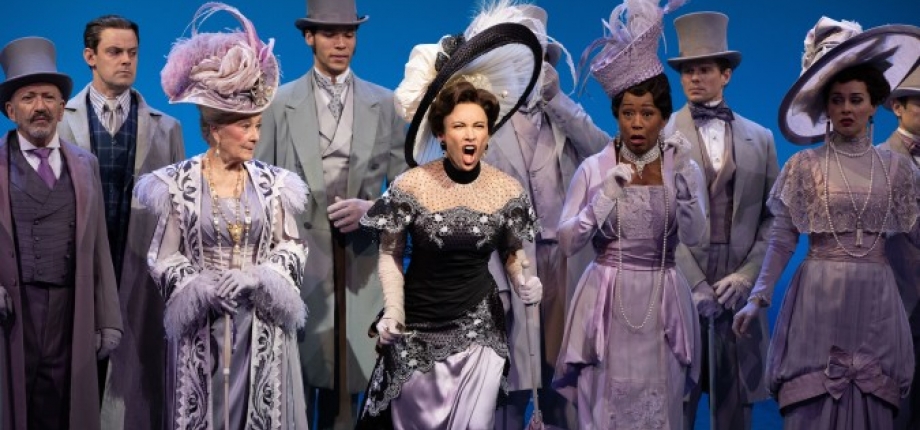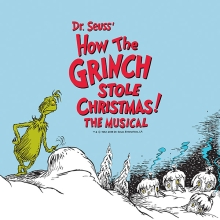Filichia Features: A New Eliza in My Fair Lady

Filichia Features: A New Eliza in My Fair Lady
Laura Benanti has joined Zoltan Karparthy in wanting "to find out who this Ms. Doolittle is."
Tony-winner Benanti assumed the role of Eliza in Lincoln Center Theater's My Fair Lady some months ago. In the process, she's discovered aspects of the character that should inspire all future Elizas.
When Henry Higgins begins insulting Eliza's pronunciations in "Why Can't the English?" Benanti makes the character defensive. Her "Garn!" has a who-cares-about-you attitude.
Then, however, Benanti's face shows that Eliza finds herself paying rapt attention to what he's saying. She must, however reluctantly, agree with him.
That leads to her looking ashamed of herself. We see her wonder if she can possibly emerge from this terrible hole into which society has thrust her.
As the song continues, she begins to rally. By the end, she projects an attitude that shows us that she at least wants to explore the possibilities of changing her life.
What's most remarkable is that all this happens without her saying a word after "Garn!" Benanti's facial expressions alone let us see that Eliza is a smart woman.
Thus her "Wouldn't It Be Loverly?" isn't just pipe-dream musing; it's more of a business plan. This Eliza shows us that she's ready to go to Higgins' house and at least try to change her life.
Once she's actually inside 27A Wimpole Street, Benanti shows us how cowed Eliza is by its splendor. This stately home of England is a sobering indication of how far away she is from this life -- and how far and long a journey it would be for her to be worthy of it. It's one reason why Benanti pauses before saying that she'd like to be "a lady in a flower shop." Now she's reluctant to even mention what seems to be an impossible dream.
Compounding this is the way Benanti sits on the divan. She spreads her legs so far apart that you could easily slide in one of those hotel room mini-fridges between them. No, Eliza won't be easily assimilated into the finer life; she has much to learn.
After Higgins threatens Eliza with "Somebody is going to touch you with a broomstick if you don't stop sniveling," Benanti comes out with genuine and serious anguish when stating "One would think you was my father." She lets us imagine the pain that Alfred P. Doolittle has literally inflicted on her. If we have doubts, they're erased when Mr. Doolittle later suggests to Higgins "Give her a few licks of the strap."
When Eliza goes to Ascot, Benanti is at first as scared as Louise before her first striptease in Wichita's one and only burlesque theater. Then she gets stronger: "I bet I got it right," she says firmly when questioned before looking questioningly at Higgins and hoping that she indeed did. If she were to bet, she wouldn't wager much.
My Fair Lady revolutionized musical theater by having a leading man who spoke his way through much of his songs. In one instance, Benanti does, too. Although her glorious soprano permeates the production, she speaks through much of "Without You" in a way that suggests she's really getting down to brass tacks.
Fair Lady demands many crowd scenes; here director Bartlett Sher took a moment from the Oscar-winning film that should inspire directors who are staging a crowd scene in any musical.
For in the middle of busy Londoners going to and fro, Sher - as George Cukor did -- brings in a mini-parade of suffragettes who carry "Votes for Women!" signs. So whenever you have a crowd, try to find a purpose for your people. Fair Lady takes place in England circa 1913, where the women didn't get the vote until 1918. Seek out what was actually happening in the era your show is set and remind us of the time-frame by your ensemble.
When My Fair Lady opened, Brooks Atkinson, the esteemed New York Times theater critic dubbed it "the musical of the century." He probably meant 1901-2000, but he also could have been implying that the show would survive 100 years.
The latter may yet turn out to be accurate, for this week, Fair Lady marks its 63rd birthday with the fourth of its Broadway revivals on the boards. Only 37 years to go for a full century - and would anyone bet against its still being performed in 2056? That'll be even more of a lock if productions can woo talented and incisive performers to interpret characters as well as Laura Benanti does.
You may e-mail Peter at pfilichia@aol.com. Check out his weekly column each Monday at www.broadwayselect.com and Tuesday at www.masterworksbroadway.com . He can be heard most weeks of the year on www.broadwayradio.com.

























